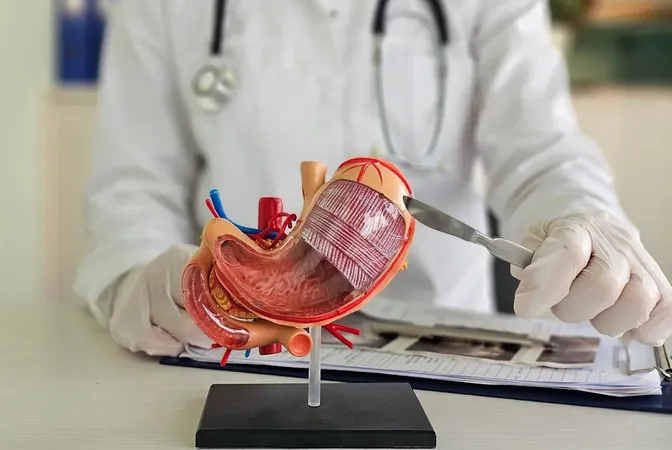
Revolutionary Laparoscopic Probe: A Game Changer in the Fight Against Gastrointestinal Cancer!
2025-04-08
Author: Li
Introduction
Researchers at the University of South Australia (UniSA) are paving the way toward a groundbreaking advancement in cancer treatment with the development of a cutting-edge laparoscopic probe specifically designed to target gastrointestinal cancers. This innovative project harnesses the power of quantum technology and has received robust support from the federal government’s Economic Accelerator (AEA) Ignite Grant, amounting to A$405,050 (approximately $244,854).
Collaborative Initiative
The ambitious initiative, in partnership with precision cancer surgery company Ferronova, aims to create a sophisticated laparoscopic probe that accurately maps the spread of tumors. Dr. Nicole Dmochowska, a leading researcher from UniSA's Future Industries Institute, is at the forefront of this promising project.
Innovative Technology
Key to this novel approach is the utilization of Ferronova's innovative iron-oxide nanoparticle formulation, known as FerroTrace. When combined with the laparoscopic probe, this technology significantly improves the detection of cancerous lymph nodes during surgical procedures. By enhancing the accuracy of these operations, the goal is to reduce the need for extensive, invasive procedures that often leave patients with severe complications and long-lasting side effects.
Research Progress
Notably, UniSA's research team has already demonstrated the feasibility of this quantum sensor-based magnetometer probe in a Phase I trial for oral cancer, showcasing over eight years of dedicated research in developing magnetometer probes specifically for cancer surgery.
Next Steps with Ignite Grant
The Ignite Grant will catalyze the next crucial phase: the creation of a fully functional prototype for testing in large animal models, which sets the groundwork for future human trials. Dr. Aidan Cousins, a senior researcher and development engineer at Ferronova, highlights the distinct advantages of the quantum probe and FerroTrace combination over traditional lymphatic mapping techniques that rely on radioactive tracers.
Expert Insights
"This new method is expected to be not only safer but also far more effective," said Dr. Cousins. He emphasized that the technology holds tremendous promise for patients undergoing chemotherapy and radiotherapy before surgery, where conventional lymphatic mapping methods struggle with effectiveness.
Conclusion
"This could represent a paradigm shift in cancer treatment, significantly improving the quality of life for millions of patients worldwide," he added. As UniSA continues to innovate in the realm of cancer treatment, this laparoscopic probe could be a significant turning point in how gastrointestinal cancers are diagnosed and treated, offering hope to countless individuals battling this challenging illness. Stay tuned for further updates as this remarkable research progresses!




 Brasil (PT)
Brasil (PT)
 Canada (EN)
Canada (EN)
 Chile (ES)
Chile (ES)
 Česko (CS)
Česko (CS)
 대한민국 (KO)
대한민국 (KO)
 España (ES)
España (ES)
 France (FR)
France (FR)
 Hong Kong (EN)
Hong Kong (EN)
 Italia (IT)
Italia (IT)
 日本 (JA)
日本 (JA)
 Magyarország (HU)
Magyarország (HU)
 Norge (NO)
Norge (NO)
 Polska (PL)
Polska (PL)
 Schweiz (DE)
Schweiz (DE)
 Singapore (EN)
Singapore (EN)
 Sverige (SV)
Sverige (SV)
 Suomi (FI)
Suomi (FI)
 Türkiye (TR)
Türkiye (TR)
 الإمارات العربية المتحدة (AR)
الإمارات العربية المتحدة (AR)